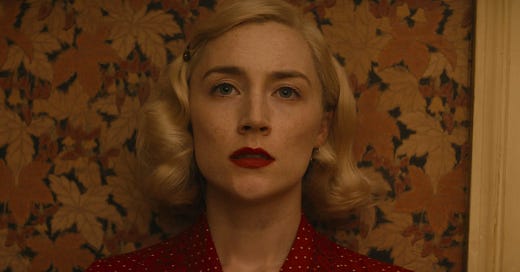Blitz
“Blitz” is a film that’s easy to take for granted. A World War II thriller and melodrama from Steve McQueen, it is by most measures highly conventional, and with its handsome period recreation of 1940s London, it’s what plenty of movie-goers might slap with a dreaded label: Oscar bait. But even with its clichés, to write “Blitz” off as too familiar or formulaic is to miss out on a display of sumptuously controlled film style from McQueen. His storytelling is rousingly classical, and for every beat that is heavy-handed or too simplistic, there’s a flash of touching humanity or cinematic grace.
Following 9-year-old George (Elliott Heffernan) as he winds through a London under siege by Nazi Germany, the story has a Spielbergian sense of wartime adventure. After his single mother Rita (Saorise Ronan, exquisite) sends him to the country for his own safety, George, who’s bi-racial, ventures back into the city alone to find her, encountering both kind and cruel individuals as he seeks his way home amid the falling bombs. “Blitz” is weakest in how it paints the Londoners that George meets in such broad, one-dimensional strokes. The cruelty of a group of thieves who forcibly recruit George is cartoonish. The inspirational impact of a friendly Nigerian soldier on George is contrived.
Where “Blitz” transcends its oversimplifications is through its poetic sense of the war’s devastation. This is felt in the craft, like when McQueen opts for a fade to black rather than show the luminous energy of a nightclub being extinguished by a bomb. The magnitude and depth of the war’s impact on George is best expressed not through any line of dialogue, but a slow dissolve from a close-up on George’s face to a shot of the city in flames. The most beautiful flourish is a recurring shot of a field of daffodils, captured in black and white through a roaming camera. It’s a trace of McQueen’s experimental roots, and it evokes loss with a bracing clarity.
To be sure, the film’s lack of subtlety is disappointing, particularly in its portrayal of the racism that both Rita and George endure. But balanced with sturdily constructed suspense sequences, McQueen’s lyricism frequently turns “Blitz” into more of a eulogy rather than moral sermon. There is as much tragedy in the final shot as there is hope.




